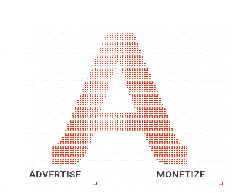Day 21: IFRS 2 – Share-based Payments
International Financial Reporting Standard (IFRS) 2, Share-based Payments, is a critical standard that outlines the accounting treatment for share-based payment transactions. These transactions involve the issuance of shares or other equity instruments to employees, directors, or other parties in exchange for goods or services. In this post, we will delve into the details of IFRS 2, exploring the key concepts, requirements, and applications of the standard.
Introduction to Share-based Payments
Share-based payments are a common practice in many organizations, where employees or other parties are rewarded with shares or other equity instruments in exchange for their services. These transactions can take various forms, including employee stock options, share appreciation rights, and restricted stock units. The primary objective of IFRS 2 is to provide a consistent and transparent accounting treatment for these transactions, ensuring that the financial statements of an entity accurately reflect the economic reality of share-based payment arrangements.
Equity-settled vs. Cash-settled Transactions
IFRS 2 distinguishes between two types of share-based payment transactions: equity-settled and cash-settled. Equity-settled transactions involve the issuance of shares or other equity instruments to the counterparty, whereas cash-settled transactions involve the payment of cash to the counterparty.
Equity-settled transactions are accounted for as follows:
- The entity recognizes the goods or services received as an expense, with a corresponding increase in equity.
- The expense is measured at the fair value of the goods or services received.
- The fair value of the equity instruments issued is recognized as an increase in equity.
Cash-settled transactions, on the other hand, are accounted for as follows:
- The entity recognizes the goods or services received as an expense, with a corresponding liability.
- The expense is measured at the fair value of the goods or services received.
- The liability is recognized at the fair value of the cash payment to be made.
Employee Stock Options
Employee stock options (ESOs) are a common type of share-based payment transaction. ESOs give employees the right to purchase a specified number of shares at a predetermined price (the exercise price) within a certain period. The accounting treatment for ESOs under IFRS 2 is as follows:
- The entity recognizes the expense related to the ESOs over the vesting period, which is the period during which the employee must provide service to the entity in order to become unconditionally entitled to the shares.
- The expense is measured at the fair value of the ESOs, which is determined using an option pricing model, such as the Black-Scholes model.
- The fair value of the ESOs is recognized as an increase in equity, with a corresponding decrease in retained earnings.
Measurement of Fair Value
The measurement of fair value is a critical aspect of IFRS 2. Fair value is defined as the amount for which an asset could be exchanged, or a liability settled, between knowledgeable, willing parties in an arm’s length transaction. The standard requires entities to use a valuation technique that is appropriate in the circumstances, such as an option pricing model or a binomial model.
Disclosure Requirements
IFRS 2 requires entities to disclose information about their share-based payment transactions, including:
- A description of the share-based payment arrangements
- The number and weighted average exercise price of share options granted, exercised, and outstanding
- The fair value of share options granted, measured at the grant date
- The expense recognized in the income statement related to share-based payments
Share-Based Payment Arrangements
Share-based payment arrangements can take various forms, including:
- Employee Stock Options (ESOs): ESOs give employees the right to purchase a specified number of shares at a predetermined price (the exercise price) within a certain period.
- Share Appreciation Rights (SARs): SARs give employees the right to receive a cash payment or shares based on the increased value of the entity’s shares over a certain period.
- Restricted Stock Units (RSUs): RSUs give employees the right to receive shares after a certain period, provided they meet certain conditions, such as remaining employed by the entity.
- Performance Shares: Performance shares give employees the right to receive shares based on the achievement of certain performance conditions, such as revenue growth or profitability.
Vesting Period
The vesting period is when the employee must provide service to the entity to become unconditionally entitled to the shares. The vesting period can be based on time, performance, or a combination of both. For example, an entity may grant ESOs to an employee with a vesting period of three years, which means the employee must remain employed by the entity for three years to become unconditionally entitled to the shares.
The fair value of share-based payments is measured using a valuation technique that is appropriate in the circumstances, such as an option pricing model or a binomial model. The fair value is determined at the grant date, which is the date on which the share-based payment is granted to the employee.
Option Pricing Models
Option pricing models, such as the Black-Scholes model, are used to estimate the fair value of ESOs. These models take into account various factors, including:
- Exercise Price: The predetermined price at which the employee can purchase the shares.
- Time to Maturity: The period during which the employee can exercise the option.
- Volatility: The degree of uncertainty or risk associated with the entity’s shares.
- Risk-free Rate: The rate of return that can be earned on a risk-free investment.
- Dividend Yield: The ratio of the annual dividend payment to the entity’s share price.
Binomial Models
Binomial models, such as the Cox-Ross-Rubinstein model, are used to estimate the fair value of share-based payments. These models take into account various factors, including:
- Time to Maturity: The period during which the employee can exercise the option.
- Volatility: The degree of uncertainty or risk associated with the entity’s shares.
- Risk-free Rate: The rate of return that can be earned on a risk-free investment.
- Dividend Yield: The ratio of the annual dividend payment to the entity’s share price.
Share-based Payment Transactions
Share-based payment transactions can have a significant impact on an entity’s financial statements. These transactions can affect an entity’s income statement, balance sheet, and cash flow statement. For example, the expense related to share-based payments can reduce an entity’s net income, while the issuance of shares can increase an entity’s equity.
Employee Stock Options
Employee stock options (ESOs) are a common type of share-based payment transaction. ESOs give employees the right to purchase a specified number of shares at a predetermined price (the exercise price) within a certain period. The accounting treatment for ESOs under IFRS 2 is as follows:
- Recognition of Expense: The entity recognizes the expense related to the ESOs over the vesting period.
- Measurement of Fair Value: The fair value of the ESOs is measured using an option pricing model, such as the Black-Scholes model.
- Recognition of Equity: The fair value of the ESOs is recognized as an increase in equity, with a corresponding decrease in retained earnings.
Share Appreciation Rights
Share appreciation rights (SARs) give employees the right to receive a cash payment or shares based on the increase in the value of the entity’s shares over a certain period. The accounting treatment for SARs under IFRS 2 is as follows:
- Recognition of Expense: The entity recognizes the expense related to the SARs over the vesting period.
- Measurement of Fair Value: The fair value of the SARs is measured using a valuation technique, such as an option pricing model.
- Recognition of Liability: The fair value of the SARs is recognized as a liability, with a corresponding increase in expenses.
Restricted Stock Units
Restricted stock units (RSUs) give employees the right to receive shares after a certain period, provided they meet certain conditions, such as remaining employed by the entity. The accounting treatment for RSUs under IFRS 2 is as follows:
- Recognition of Expense: The entity recognizes the expense related to the RSUs over the vesting period.
- Measurement of Fair Value: The fair value of the RSUs is measured using a valuation technique, such as a discounted cash flow model.
- Recognition of Equity: The fair value of the RSUs is recognized as an increase in equity, with a corresponding decrease in retained earnings.
Performance Shares
Performance shares give employees the right to receive shares based on the achievement of certain performance conditions, such as revenue growth or profitability. The accounting treatment for performance shares under IFRS 2 is as follows:
- Recognition of Expense: The entity recognizes the expense related to the performance shares over the vesting period.
- Measurement of Fair Value: The fair value of the performance shares is measured using a valuation technique, such as a discounted cash flow model.
- Recognition of Equity: The fair value of the performance shares is recognized as an increase in equity, with a corresponding decrease in retained earnings.
Conclusion
IFRS 2 provides a comprehensive framework for accounting for share-based payment transactions. The standard requires entities to recognize the expense related to these transactions, measured at the fair value of the equity instruments issued or the cash payment to be made. The disclosure requirements of IFRS 2 provide stakeholders with valuable information about an entity’s share-based payment arrangements, enabling them to make informed decisions. By applying the principles and requirements of IFRS 2, entities can ensure that their financial statements accurately reflect the economic reality of their share-based payment transactions.
Previous Post IAS 21 Foreign Exchange Rates
Next Post IFRS 3 Business Combinations
Bookkeeping Services @ ONE WEB ONE HUB: 
One Web One Hub, in association with MTF & Co., provides comprehensive bookkeeping services to help entities comply with IFRS 2 and other accounting standards. Our team of experienced accountants and bookkeepers can assist with the preparation of financial statements, disclosure requirements, and other aspects of share-based payment transactions. Contact us today to learn more about our bookkeeping services. Please email us at mtfco@onewebonehub.com WattsApp: +923369324829












